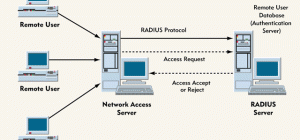 Multimode fiber optic patch cables are the latest medium of transmission and are considerably much faster than their older copper counterparts. Whether it’s for new cabling installations or upgrades, including backbone, horizontal and even desktop applications, fiber optic cables are the trend of the hour. In fact, a lot of technicians are preferring fiber cables over copper cables these days and the reasons behind that are many. Let’s take a look at some of them:
Multimode fiber optic patch cables are the latest medium of transmission and are considerably much faster than their older copper counterparts. Whether it’s for new cabling installations or upgrades, including backbone, horizontal and even desktop applications, fiber optic cables are the trend of the hour. In fact, a lot of technicians are preferring fiber cables over copper cables these days and the reasons behind that are many. Let’s take a look at some of them:
1. Greater Bandwidth
Fiber gives far better data transmission than copper and has institutionalized execution of up to 10 Gbps. While not the norm at present, these rates could turn into a reality in future ratifications. Remember, speed is reliant on the sort of cable used and as such, when it comes to cables, quality maters the most.
2. Covers Greater Distance
Since the fiber optic signals are made of light, there is hardly any signal loss amid transmissions and information can move at higher speeds even for greater distances. Fiber does not have the 100-meter (9328-ft.) distance limitation that copper cables do, thereby proving to be better in transmissions at greater distances.
3. Security
Your information is sheltered with fiber cables because it doesn’t emanate flags and is not easy to tap. On the off chance that the cable is tapped, it’s anything but easy to screen considering that the cable releases light, bringing the whole system to fall flat. As such, on the off chance that an attempt is made to break the physical security of your fiber cables, you’ll know it.
4. Safety and Dependability
Fiber cables always provide solid information transmission and are totally safe from those numerous elements that influence copper cables. The center is made of glass, which is a cover, so no electric current can course through. It’s safe to electrometric obstruction and radio-recurrence obstruction (EM/RFI), crosstalk, impedance issues and many other things. You can run fiber copper in mechanical hardware without much worries as it is less vulnerable to temperature changes than copper and can even be submerged in water.
5. Design
Fiber is lightweight and sturdier than copper cables. Along with that, multimode fiber optic patch cables have pulling details that are up to 10 times better than their copper counterparts. Its little size makes it less demanding to handle, and it takes up significantly less space in cabling conduits. Despite the fact that fiber is still harder to terminate than copper, headways in connectors are making it simpler. Furthermore, fiber is really a lot less demanding to test than copper cables are.
6. Cost
One of the best things about fiber cables is their cost. Though it has so many qualities and is, generally speaking, way better than all other alternatives you could possibly get, its cost is still less than what you could imagine. Overall, while fiber may cost you a bit more than copper wires in the short run, it’s actually more reasonable and cost effective in the long run.
So, if you still have a choice to make between copper and fiber wires, consider these reasons and choose the best for yourself.





![The Smart Homes of Yesterday [Infographic]](https://lerablog.org/wp-content/plugins/wp-thumbie/timthumb.php?src=http://lerablog.org/wp-content/uploads/2014/12/big-brother-smarthomes-of-yesterday.png&w=300&h=140&zc=1)

